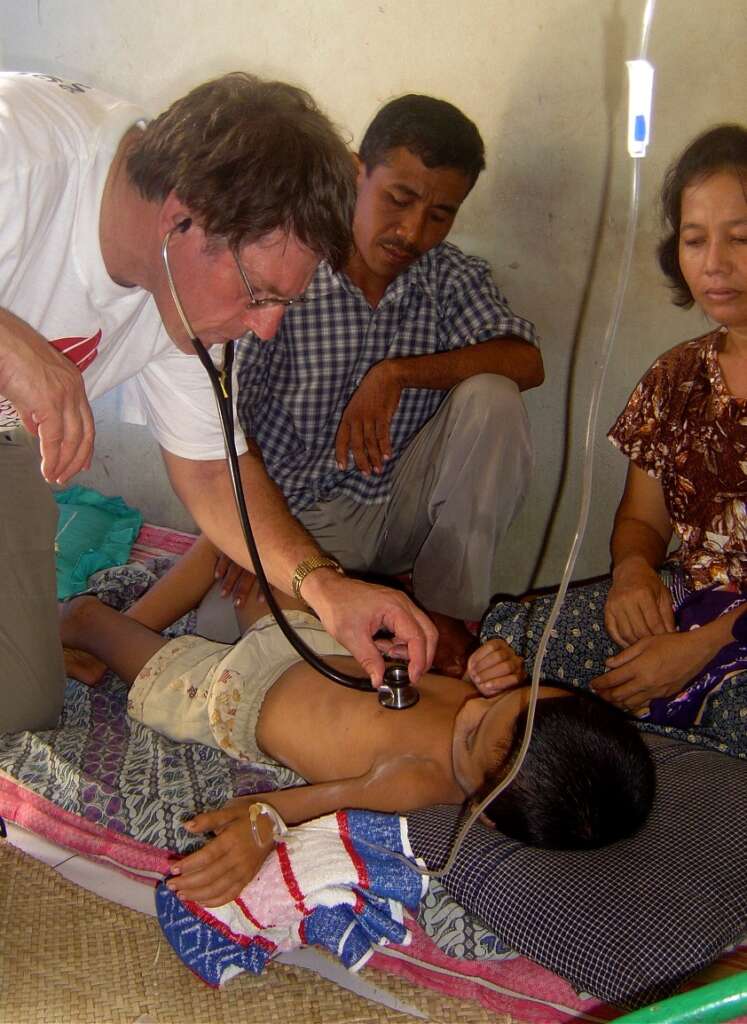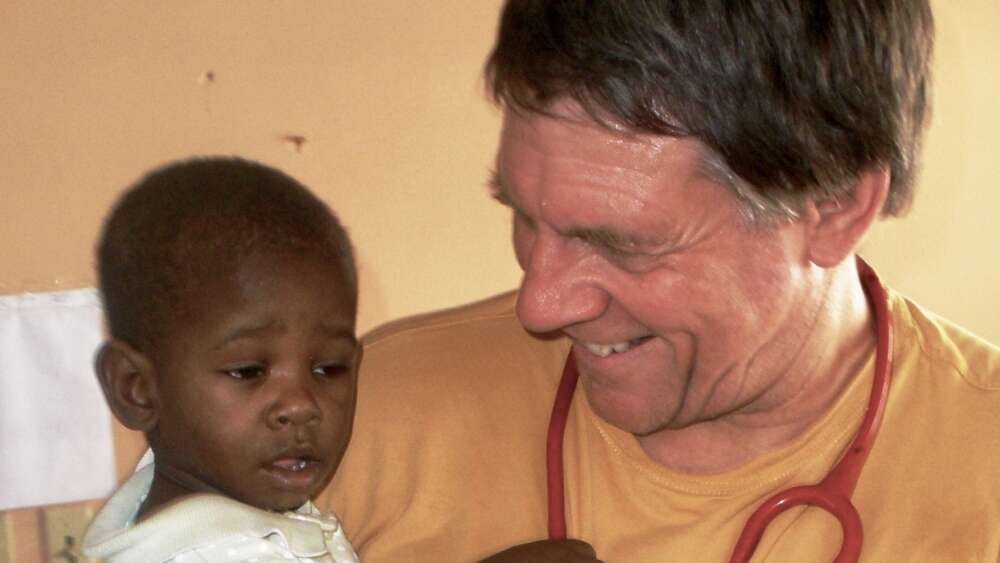As a leading respiratory physician, Bruce Robinson has seen suffering ‘at the coalface’ over many years, having to break the heartbreaking news hundreds of times to patients that they are dying of cancer, and then walking that journey with them.
As a doctor he has been a first responder at many disasters such as the 2004 Indian Ocean tsunami in Aceh, witnessing the deep ‘visceral’ suffering of thousands of innocent people at such close quarters that it would bring him to tears.
Yet it was when he went through a period of personal suffering – when his wife was diagnosed with breast cancer, and he became ill and exhausted after working as a doctor after the 2018 Indonesian earthquake and tsunami in Sulawesi – that deepened Robinson’s understanding of the transforming power of Jesus-like responses to suffering.
Through these and other experiences he became a kinder doctor and a more empathic person with his friends.
“All of this suffering has helped to drive me to becoming better at caring for people,” he explains.
“As a cancer researcher I work with genes, immunology and other complicated stuff, but it is mostly in my clinical practice that I can respond to patients with empathy. Then I get on planes and helicopters to fly into terrible disaster zones and, working long and demanding hours in tough conditions, I get extra opportunities to reach out with Jesus-inspired compassion.”

Bruce with children in Sulawesi.
Talking about these experiences with people he respected prompted them to urge him to write a book. Though he had written widely on how to be a better father, Robinson was reluctant, knowing there were a lot of books on the theology of suffering and personal stories of suffering. He decided to concentrate on “how” to survive suffering rather than the “why” of suffering.
“Most Christians don’t get much exposure to the ‘how’ – yet it is a crucial part of our growth and discipleship,” he says.
The result is Behind the Tears: Understanding, Surviving and Growing from Suffering, which has been shortlisted for the 2023 Sparklit Australian Christian Book of the Year. I found it a brilliant and moving book – easy to read, full of personal stories and practical insights and wisdom.
We need the compassion and wisdom of Jesus to care for people well.
“I have a particular heart for church members,” Robinson tells Eternity during a Zoom call from Rome.
“The other month, I’m sitting at church and in front of me is a 45-year-old man who’s got no hair and is losing weight because he’s got terminal cancer and is on chemo. I knew what to say to him, and had visited him in hospital and at his home to talk with him.
“And I’m looking past him to all the people there, and I know there will be people who won’t want to talk to him. They’re going to avoid him. And then people who are going to say, with the best of intentions, things that aren’t helpful.
“But to be honest, I’m not naturally good at this myself. It’s just that I know that these skills can be leant, so I learnt, then taught, ‘best practice’ in talking to terminal patients and others who suffer. Anyone can learn this.”
Listen and keep listening.
This is a classic scenario where a Christian needs to learn what to say and do to be helpful rather than hurtful. No surprises for guessing that we need the compassion and wisdom of Jesus to care for people well. When we learn how to show true compassion for hurting people, caring for them becomes rewarding, not just a chore.
Robinson’s key guidelines are:
- Listen and keep listening. Resist the urge to jump in with your own experiences.
- Ask the second question, and the third question.
- Avoid Christian cliches such as “I’m sure God has a purpose in this.”
- Avoid avoidance.
The book has many other tips and stories and a deeper description of what Jesus-style engagement looked like in the New Testament. Robinson would love Christians not only to read his book but to study and model the practical steps it contains. He suggests that home groups read sections of the book, then practise in their groups.
“I’d like to see the day when every church was able to be like Jesus.” – Bruce Robinson
“People in churches should be full of love and empathy. We should have the compassion of Jesus. And Jesus, you’d have to say, even if you weren’t a Christian, is spectacular – he reached out to people suffering, whether rich or poor. Some were lepers and no one would care for them.

Bruce examines a boy with post-tsunami pneumonia. Aceh, Feb 2004.
“And here’s the thing: the gospel writers were eyewitnesses. When they wrote that he had compassion, he must have cried. He must have shown in his body language, and he must have had tears. He just loved people like that and was moved with compassion. So I’d like to see the day when every church was able to be like Jesus, which is partly knowing how to do it, not just feeling it.
“We’d be a sweet aroma of Jesus in the workplace.” – Bruce Robinson
“If everybody in the church learned how to do this, and if they were good at it after church, imagine when they go to their workplace the next week and someone’s got cancer. They’d be living the gospel because they will be like Jesus – in the workplace, in this among the school mums and dads in the football club. They’ll be like Jesus, and they will be the gospel.
“That’s why I’d love every Christian to read it. I’m not an author who needs to sell books. I’m only interested in one thing: that people get skilled. And I love the idea that everyone would read it and practise it, and then the world would be a different place. The church would be a different place. We’d be a sweet aroma of Jesus in the workplace.”


